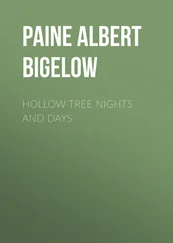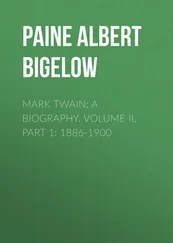Albert Paine - Life and Lillian Gish
Здесь есть возможность читать онлайн «Albert Paine - Life and Lillian Gish» — ознакомительный отрывок электронной книги совершенно бесплатно, а после прочтения отрывка купить полную версию. В некоторых случаях можно слушать аудио, скачать через торрент в формате fb2 и присутствует краткое содержание. Жанр: foreign_prose, foreign_antique, на английском языке. Описание произведения, (предисловие) а так же отзывы посетителей доступны на портале библиотеки ЛибКат.
- Название:Life and Lillian Gish
- Автор:
- Жанр:
- Год:неизвестен
- ISBN:нет данных
- Рейтинг книги:3 / 5. Голосов: 1
-
Избранное:Добавить в избранное
- Отзывы:
-
Ваша оценка:
- 60
- 1
- 2
- 3
- 4
- 5
Life and Lillian Gish: краткое содержание, описание и аннотация
Предлагаем к чтению аннотацию, описание, краткое содержание или предисловие (зависит от того, что написал сам автор книги «Life and Lillian Gish»). Если вы не нашли необходимую информацию о книге — напишите в комментариях, мы постараемся отыскать её.
Life and Lillian Gish — читать онлайн ознакомительный отрывок
Ниже представлен текст книги, разбитый по страницам. Система сохранения места последней прочитанной страницы, позволяет с удобством читать онлайн бесплатно книгу «Life and Lillian Gish», без необходимости каждый раз заново искать на чём Вы остановились. Поставьте закладку, и сможете в любой момент перейти на страницу, на которой закончили чтение.
Интервал:
Закладка:
The meeting between the two little girls, destined to become world stars, was neither formal nor memorable. More than twenty years later, in an article in Photoplay , Mary Pickford wrote:
Neither of us, I am sure, remembers our first meeting. We were too young to be impressed by the event. I do recall a fleeting glimpse of Lillian when I went to Buffalo from Toronto to take the part of little Mabel Payne that she had been playing in Hal Reid’s famous old melodrama, “The Little Red Schoolhouse.” Lillian was just leaving the theatre as I came in, and we waved. She could not stop to talk, because she was being whisked away to catch a train for New York.
Lillian and Mary! How little either of them guessed, that day, that within no more than a dozen years, the names and faces of those little yellow-haired, waving girls would be familiar, and beloved, in the world’s far corners.
Alice Niles and Lillian rode with Mrs. Smith and Lottie and Jack to New York. Lillian’s mother, at the train to meet her, took them all to her apartment, established Mrs. Smith and her children there for as long as they would stay—a kindness which Mrs. Smith, a stranger in New York, never forgot. Mrs. Gish, by this time quite a professional, also introduced her to theatrical agencies, with a view to future engagements. In a word, they joined forces. And thus began an association which was to last many years, and become historic in the theatrical world.
Whether Lillian went out again that season may only be surmised. At some time in the days of her beginning, she had a “Little Willie” part in another “East Lynne” Company—Mabel Pennock’s, and long preserved the little trousers she wore. It was a brief engagement, and she had no clear picture of it, later. She seems to remember that, like Dorothy, she went to sleep one night and rolled off the little bench during Madame Vine’s long scene, but this is most likely a confusion. Lillian would be too conscientious and well-trained to do a thing like that, even in her sleep.
The end of the dramatic season found two mothers, four girls and a boy in the Gish flat, a combination that at times could produce something resembling a riot. They were a happy family. They went in for two things: peace, and economy. Lillian’s influence had much to do with the former—her unearthly beauty and gentleness. Mrs. Smith told her children that she looked “like an angel dropped out of Heaven,” and with the old Irish superstition that the good die young, they expected any moment to see a long arm reach out of the sky and take her home. Gladys, especially, refused to be left entirely alone with her, fearing it might happen at such a time. Certainly she was not always melancholy. Life was a serious matter—from the beginning, apparently, she had known that; also, that Heaven was indeed a desirable place to go to—to wake up in, some morning, quite soon. Yet she enjoyed the company of the others, especially when they went on little excursions. Once at least, they all went to the theatre. Mary, in her article, tells of this:
What fun we youngsters had! Never will I forget the day we went to the American Theatre on Eighth Avenue near 42nd Street. At that time, the American was one of the important legitimate theatres. Now it is a picture house, I think. A Shakesperian play was on; I cannot recall its name, but it seems to me that it was “King Lear.” At any rate, it was very heavy and tragic, and we all sat in a row, looking very important and pretending to understand every word. I remember how I went up to the manager in a very sober and dignified manner, and presented my card, saying: “Do you recognize the profession?” There we were, five of us—Lillian, Dorothy, Lottie, Jack and I—and to the manager we must have looked very much like the family of the old Mother Goose lady who lived in the shoe. He smiled amusedly, and assured us that he most certainly did recognize the profession, adding: “Have you got ten cents apiece for the Actors’ Fund?”
This threw us into a near panic, for a hasty survey of our resources disclosed that among all of us we had only eight pennies and one had a hole in it. The manager, however, finally relented and passed us in, telling us that we could give him the money for the Actors’ Fund some other time. What a task it was to pay that debt! For weeks and weeks, it seemed, we were running to that box office every time we had saved a few pennies.
The combined housekeeping made for economy, and here, too, Gladys Smith was a leader and a force. Even the mothers listened to her advice. On the kitchen table, at night, with a grubby little pencil and a scrap of paper, she audited the accounts.
Those were very meagre, but really very happy, days. When Mrs. Smith was called to Toronto by her mother’s failing health, Mary remained undisputed head of the Smith family, and dealt out counsel, rewards, even punishments, with a fair but firm hand.
VIII
“DOWN THE LINE”
With money saved from her own and the children’s earnings, Mary Gish opened a candy and popcorn stand at the Fort George amusement grounds. Her six or seven years of candy making and business experience came in very handy, now. She hired an assistant—one strong enough to pull the taffy she made—Don, a handsome, good-hearted boy, with whom Dorothy fell desperately in love. It was a joy to Dorothy to stand on the counter or on a chair and “ballyhoo” for Don’s taffy and popcorn. “This way for the best taffy and popcorn in New York! This way, this way!” Lillian would do it, too, but from a sense of duty, and much less riotously. Mary Pickford recently said:
“I can still hear Lillian’s timid little voice saying: ‘Would you like to buy some popcorn?!’”
To the Smith (Pickford) family, Mrs. Gish’s stand at Fort George was in the nature of a diversion. Often in high season, they went up there, to help. In the early morning, the two families rode up together on the streetcar, the two younger ones discussing their rights to the “outside seat.” Jack was dead in love with Dorothy, but there is a limit to love’s sacrifice.
Arriving at Fort George, everybody helped. The corn had to be popped and put in bags; the candy had to be wrapped in paraffined paper, a good deal of a chore. Mrs. Gish let them eat what candy they wanted, and in the beginning their by-word was “Wrap one and eat two.” Then presently they were just wrapping, for the charm of a candy diet is fleeting. There was a place “down the line” where one got marvelous German-fried-potatoes, at a nickel a dish. About noon, armed with a nickel apiece, they went down there. Those heavenly fried potatoes! If one might only get a job with the potato man. Or the milk-shake man....
An interesting place, the “line”: Stands of several sorts; a variety of shows, and a merry-go-round. The children found it fascinating. There was a place where they had ponies, and the man there on slack days let Lillian and Dorothy ride. They learned quickly, and went tearing up and down, their astonishing hair flying out behind. They really rode like mad—good training for those “picture” days ahead, when as Indians, or cowboys, they would go racing among the hills behind Los Angeles. The pony man declared that they rode like monkeys, and the lovely spectacle they made undoubtedly brought him business.
Dorothy came to grief. One day her pony swerved, or stopped, or something, and Dorothy didn’t. So she broke her arm, a thing so terrifying to Lillian that she scrambled quickly from her horse and hid behind the merry-go-round. The alarm reached the Gish taffy stand, and Dorothy’s beloved Don came on a dead run and bore her in his arms to her mother. Don, so noble and brave and beautiful—how heavenly—worth breaking one’s arm for. Then there was the ride to the hospital in the clanging ambulance, with everybody getting out of the way!
Читать дальшеИнтервал:
Закладка:
Похожие книги на «Life and Lillian Gish»
Представляем Вашему вниманию похожие книги на «Life and Lillian Gish» списком для выбора. Мы отобрали схожую по названию и смыслу литературу в надежде предоставить читателям больше вариантов отыскать новые, интересные, ещё непрочитанные произведения.
Обсуждение, отзывы о книге «Life and Lillian Gish» и просто собственные мнения читателей. Оставьте ваши комментарии, напишите, что Вы думаете о произведении, его смысле или главных героях. Укажите что конкретно понравилось, а что нет, и почему Вы так считаете.












